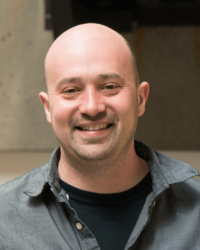Science is in the midst of a data deluge: Experiments are churning out more information than researchers can process. But a new endeavor, centered on artificial intelligence, will help scientists navigate this data-rich reality.
On Sept. 28, the National Science Foundation announced $15 million, five-year grant to integrate AI tools into the scientific research and discovery process. The award will fund the Accelerated AI Algorithms for Data-Driven Discovery Institute - or A3D3 Institute - a partnership of nine universities, led by the University of Washington.
The A3D3 Institute aims to accelerate the discovery pipeline by providing scientists with new, paradigm-shifting AI tools for analyzing the types of large and complex datasets that are an increasingly common feature of research - from medical laboratories to particle colliders.
"I have been fortunate to work with an exceptional group of talented researchers, and am thrilled to continue to be a part of solving some of the most fundamental issues in science and engineering. The ultimate goal of A3D3 is to construct the institutional knowledge essential for real-time applications of AI in any scientific field," said Shih-Chieh Hsu, a UW associate professor of physics and director of the A3D3 Institute. "A3D3 will empower scientists with new tools to deal with the coming data deluge through dedicated outreach efforts."
The A3D3 Institute - part of the NSF's Harnessing the Data Revolution program - is a collaboration among researchers at the University of Washington; the University of Illinois at Urbana-Champaign; Duke University; the Massachusetts Institute of Technology; the University of Minnesota, Twin Cities; the California Institute of Technology; Purdue University; the University of California, San Diego; and the University of Wisconsin-Madison.
In addition to Hsu, other UW faculty involved with the A3D3 Institute are Scott Hauck, professor of electrical and computer engineering; Amy Orsborn, assistant professor of bioengineering and of electrical and computer engineering; and Eli Shlizerman, associate professor of applied mathematics and of electrical and computer engineering.

A3D3 will combine innovations in AI algorithms and computing platforms with research applications in physics, astronomy and neuroscience.Philip Harris/Massachusetts Institute of Technology
From detectors searching for gravitational waves to electrical sensors monitoring the activity of the brain, research is handing scientists ever-larger datasets to analyze. Experiments are generating more data in part because researchers are developing better tools, from sharper medical imaging techniques to more precise sensors for particle physics experiments. A single experiment at CERN's Large Hadron Collider, for example, can generate 1 petabyte of data - that's 1 million gigabytes - per second from tens of millions of collisions. But as datasets increase in size and complexity, the algorithms needed to analyze data and put the most relevant bits - or bytes - before the eyes of scientists run the risk of outstripping current computing capacity.
A3D3 research will focus on developing AI-based algorithms that can perform real-time analyses of large datasets in three data-rich fields: multi-messenger astrophysics, high-energy particle physics and neuroscience.
"The advancement of computing power from machine learning techniques on high-performance computing platforms is providing exciting new avenues for scientific discovery, while the unique challenges in high-speed and high-throughput data collection for science applications drive new demands for researchers," said Hauck.
Multi-messenger astrophysics integrates observations of the cosmos from diverse sources - including gravitational wave detectors, neutrino detectors and telescopes - to identify and study sudden and often violent events in the cosmos like supernovae, stellar collisions and black hole mergers. A3D3 researchers will work to develop AI algorithms that can quickly identify these events and help astronomers to cross-correlate observations of the same event from different sources, building a more complete picture of the types of transient events in our sky.
High-energy physics experiments, such as those studied by Hsu at the Large Hadron Collider, have the potential to upend our understanding of the universe by discovering new types of particles - like candidate dark matter particles - as well as new fundamental forces. A3D3 efforts will focus on AI-fueled approaches to detect unexpected anomalies in collision data and "reconstruct" the particles underlying 40 million collisions per second that occur in high-energy experiments. These tools will streamline the downstream analysis processes, accelerating and simplifying the pipeline of discovery.
In neuroscience, A3D3 efforts will center on understanding the complex neural networks within the human brain that govern motor functions and process sensory information.
"We can now measure more of the brain for longer periods of time. We need new tools to analyze these massive datasets," said Orsborn, who is also a core staff scientist at the Washington National Primate Research Center. "Analyzing data quickly will also enable new experiments and therapies where we can intervene based on ongoing brain activity."
Researchers need AI-based algorithms to analyze neural datasets in real time - such as electrical recordings from implanted electrodes and for a wide range of basic science studies. A3D3 researchers will focus on developing these types of tools, which can help decipher the neural underpinnings of behaviors like basic motor functions and responses to stimuli.
"Critically, A3D3 researchers will focus on developing scalable analysis tools, which can adapt not just to the datasets of today, but also to the massive and intricate datasets expected in the coming decades," said Shlizerman.
With the rapid growth in the amount of data generated by scientific research, the A3D3 Institute also has its eyes on the future. The institute will pursue training and research opportunities for both graduate and undergraduate students, including students from backgrounds that are underrepresented in STEM communities. These endeavors will ensure that A3D3's impact spreads and endures beyond its immediate goals, said Hsu.











